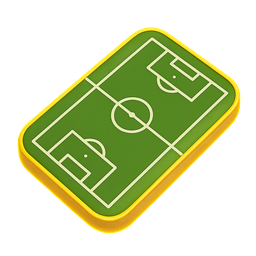Online gaming should always be fun. The thrill of spinning a slot, placing a bet on your favorite team, or trying your luck at roulette works best when it’s entertainment — not pressure. That’s why Parimatch has built a
clear framework for Responsible Gaming. It’s not just a policy buried in the footer; it’s a culture designed to keep players safe, informed, and in control of their play.
At its core, responsible gaming means setting limits, recognizing risks, and knowing where to get help if needed. Parimatch emphasizes that gambling should never be treated as a way to earn a living. Wins and losses are
part of the experience, but the line between fun and harm can be crossed if balance is lost.
The Three Pillars of Parimatch’s Responsible Gaming
-
Control – tools that let players set deposit limits, time reminders, and cooling-off periods.
-
Transparency – clear rules on bonuses, odds, and payout percentages (RTP).
-
Support – access to self-exclusion options, customer service guidance, and connections to professional organizations.
I once read about a player who activated a weekly deposit cap at Parimatch and later described it as a “safety brake.” Instead of overspending in a streak of bad luck, he knew the system would step in. That sense of control turned what
used to be stressful sessions into a hobby he could enjoy again.
Parimatch makes sure these tools aren’t hidden behind confusing menus. In most cases, you’ll find them directly in your account settings. The goal is simple: keep gambling a source of enjoyment, not regret.
Tools That Help You Stay in Control
Responsible gaming isn’t just a slogan at Parimatch. It’s a set of practical tools that let players manage their habits before gambling gets out of hand. These features are easy to find in the account dashboard and can
be adjusted to fit personal needs.
Deposit Limits
The most common safety tool is the deposit limit. Players can set a maximum amount to deposit daily, weekly, or monthly. Once that limit is hit, no further deposits are accepted until the next cycle. This prevents
impulsive decisions and makes budgeting far easier.
A story from a community forum highlights this perfectly: one player explained how setting a $100 weekly cap saved him from chasing losses. He described it as “handing the keys to the casino to a future version of myself who knows
better.”
Loss and Wagering Limits
Beyond deposits, Parimatch also offers loss limits and wagering caps. These act as guardrails when sessions become too heated. For instance, you can decide that losing more than $50 in a day
automatically blocks further bets. This turns emotional chasing into structured play.
Time Limits and Reality Checks
Losing track of time is another classic pitfall. To counter this, Parimatch integrates time reminders. After a set period — say, 60 minutes — a message pops up reminding you of how long you’ve been active. Sometimes all
it takes is that little nudge to log out, grab a coffee, or call it a night.
Cooling-Off Periods
For players who need a stronger reset, cooling-off options are available. You can lock yourself out of your account for 24 hours, a week, or even a month. During this time, you can’t log in or play until the timer
expires. It’s a way of enforcing discipline when willpower alone might not be enough.
Self-Exclusion
The most serious tool is self-exclusion. This feature allows players to block access for six months, a year, or permanently. Parimatch treats these requests with gravity: once activated, accounts stay closed for the
chosen period. For many struggling with control, self-exclusion can be a turning point toward healthier habits.
When Fun Turns Into a Problem: Spotting the Signs
Most players approach gambling as entertainment. A few spins, a sports bet, maybe a round of blackjack — it’s meant to be lighthearted. But for some, the line between fun and problem gambling blurs slowly. That’s why
Parimatch emphasizes education about early warning signs.
Common Red Flags
Parimatch encourages players to regularly check in with themselves. Some of the most common red flags include:
- Playing longer than planned, losing track of time.
- Increasing bet sizes to chase losses.
- Hiding gambling activity from friends or family.
- Feeling anxious or irritable when unable to gamble.
- Using gambling as an escape from stress, boredom, or personal issues.
If you notice several of these patterns, it doesn’t automatically mean addiction — but it signals that gambling habits may be shifting into risky territory.
The Gradual Slide
What makes problem gambling so tricky is its gradual nature. It rarely happens overnight. Instead, it starts with small adjustments: an extra deposit here, one more hour of play there. Over time, it can morph into prioritizing gambling
over relationships, work, or finances.
I came across a testimonial from a player who realized he had a problem when he skipped his friend’s wedding to join a live poker event. He said, “At the time, I convinced myself it was harmless. Looking back, it was the first big sign
I wasn’t in control.”
Emotional Connection
One subtle but telling sign is emotional dependence. When wins create euphoria but losses trigger anger or despair, gambling stops being entertainment. Parimatch highlights that the emotional rollercoaster should never dictate your
daily mood.
Self-Assessment Tools
To help with awareness, Parimatch provides self-assessment questionnaires in the Responsible Gaming section. These ask direct questions like: “Do you borrow money to gamble?” or “Do you neglect daily responsibilities
because of gambling?” Honest answers can act as a mirror, showing whether habits are still healthy or sliding off track.
Support and External Help
Even with deposit limits and self-exclusion tools, some players may need more than technology to regain balance. Parimatch acknowledges this and directs users to both in-house and third-party support systems.
Customer Support as a First Step
Parimatch’s customer service team is trained to handle Responsible Gaming requests. They can:
- Guide players in setting limits or time-outs.
- Explain the self-exclusion process.
- Provide links to professional organizations.
Importantly, when a player asks to self-exclude, the decision is treated as binding. This ensures there are no quick reversals made in a moment of temptation.
Professional Organizations
Parimatch also points players toward international and local organizations, such as:
-
GamCare – offering live chat and counseling in many regions.
-
Gambling Therapy – available globally with multilingual support.
-
National helplines – for example, the UK’s National Gambling Helpline (0808 8020 133).
By listing these openly, Parimatch shows a willingness to share responsibility, acknowledging that professional help can make all the difference.
Why Responsible Gaming Defines the Brand
What separates Parimatch from less serious operators is that responsible gaming is embedded in the culture. The tools are easy to access, not hidden away. The messaging is direct: gambling is fun, but it has risks, and
players deserve clear ways to manage those risks.
This approach builds trust. Players know they’re engaging with a platform that values their safety as much as their loyalty. And trust, once earned, keeps players coming back — not because they feel trapped, but because they feel
supported.
Conclusion
Parimatch Responsible Gaming is more than a checklist of features. It’s a holistic framework:
- Practical tools like deposit limits and time-outs.
- Education on red flags and early warning signs.
- Direct access to professional organizations for deeper support.
At the end of the day, gambling should remain a form of entertainment. By taking responsibility seriously, Parimatch ensures that players can enjoy the thrill of the game without losing control.
And perhaps the most empowering part is this: the choice always rests with the player. The tools are there, the support is visible, and the path to balanced play is clear.




































































